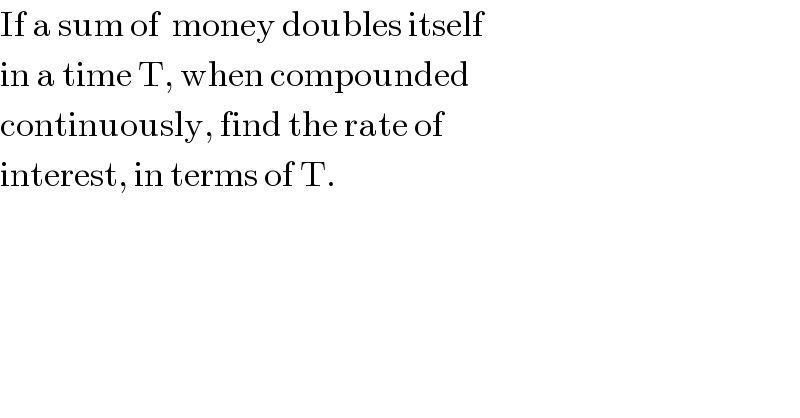
Question and Answers Forum
Question Number 60441 by ajfour last updated on 21/May/19

Answered by tanmay last updated on 21/May/19
![A=P(1+(R/(100)))^T A=2P 2P=P(1+(R/(100)))^T (2)^(1/T) =1+(R/(100)) R=100[2^(1/T) −1]](Q60442.png)
Commented by ajfour last updated on 21/May/19

Commented by tanmay last updated on 21/May/19

| ||
Question and Answers Forum | ||
Question Number 60441 by ajfour last updated on 21/May/19 | ||
 | ||
Answered by tanmay last updated on 21/May/19 | ||
![A=P(1+(R/(100)))^T A=2P 2P=P(1+(R/(100)))^T (2)^(1/T) =1+(R/(100)) R=100[2^(1/T) −1]](Q60442.png) | ||
| ||
Commented by ajfour last updated on 21/May/19 | ||
 | ||
Commented by tanmay last updated on 21/May/19 | ||
 | ||